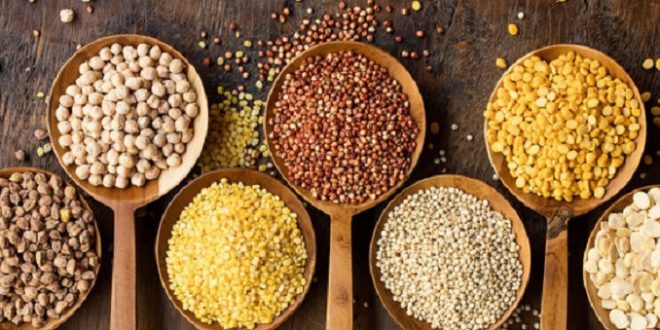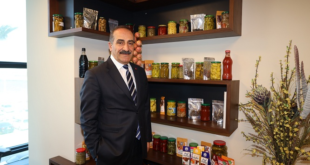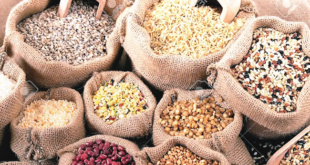Russia has harvested 78 million tonnes of grain crops this season so far, thus ensuring national food security, Roman Nekrasov, director of the department of plant growing, mechanization, chemicalization, and plant protection at the Russian agriculture ministry, said on last Saturday.
“As of yesterday, Russian farmers harvested 78 million tonnes of grain. Thanks to this, we have already ensured our own food security,” Nekrasov said at the Russian plowing championship in the Leningrad region.

The official noted that the harvesting moves on despite unfavorable weather conditions and other problems.
Russian agriculture ministry estimates that the cumulative grain harvest will amount to 130 million tonnes in 2022, including 87 million tonnes of wheat, a record for Russia. However, agricultural minister Dmitry Patrushev said last week that the objectives may not be attained for numerous reasons, including difficult weather conditions.
Last year, Russia harvested 120.6 million tonnes of grain crops, which include 75.9 million tonnes of wheat.
It is now six months since the West launched its economic war against Russia, and it is not going according to plan.
In fact, recent reports suggest that Russia may be getting more revenue from its fossil fuels now than shortly before its invasion of Ukraine because global price increases offset the impact of Western efforts to restrict its sales.
In any case, Western sanctions have not succeeded in preventing Russia from selling oil and gas, and the country has so far been making major strides in all fields. Ensuring food security is only the latest achievement among the country’s many milestones.
The war in Ukraine has sent economic shockwaves across not only the EU but also poor countries of the Middle East, Asia, and Latin America.

Prices of major food crops on world markets have increased by nearly 40 percent in the last five months. As a result, ″44 million people in 38 countries are at emergency levels of hunger,″ according to the UN.
Faced with the choice of feeding their populations or paying their international creditors, governments will opt for the former.
Terrified of the social and political consequences of food shortages, the elites had to intervene to permit the export of both Ukrainian and Russian grain. This will provide some help for Ukraine, but is much more useful to Russia.
The deal did work out but remains to see for how long. In any case, the social and political turmoil related to food shortages and rising prices has already begun to provoke revolutionary developments.
 THE GLOBAL WINDOW OF TURKISH FOOD AND AGRICULTURE The Global Window of Turkish Food and Agriculture Sector
THE GLOBAL WINDOW OF TURKISH FOOD AND AGRICULTURE The Global Window of Turkish Food and Agriculture Sector









